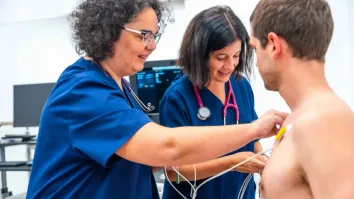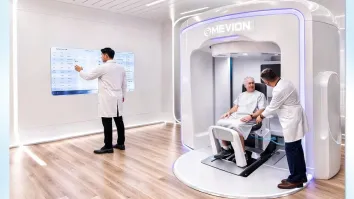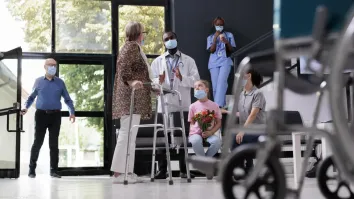
7MM uveitis market to grow from $522.5m to $1.5b by 2033
It will be driven by the growing patient population.
The uveitis market in the seven major markets (7MM: the US, France, Germany, Italy, Spain, the UK, and Japan) is expected to grow from $522.5m in 2023 to $1.5b by 2033, according to Global Data.
The growth will be driven by new therapies with innovative mechanisms of action and administration methods, as well as a growing patient population.
GlobalData’s latest report, “Uveitis: Opportunity Assessment and Forecast,” forecasts that six novel pipeline agents will enter the market, with two expected to launch across the 7MM. The rising number of uveitis cases will further support this growth.
Sara Reci, managing pharma analyst at GlobalData, noted that whilst corticosteroids are effective in treating uveitis, their side effects limit long-term use.
Key opinion leaders highlighted the need for therapies that are safer, longer-lasting, and offer alternative mechanisms of action. They also stressed the importance of improving physician education and awareness.
Several late-stage pipeline treatments, including Tarsier Pharma’s TRS-01, Priovant Therapeutics’ PF-06700841-15 (brepocitinib tosylate), Eli Lilly’s Olumiant (baricitinib), Kiora Pharmaceuticals’ KIO-104, and Roche’s EBI-031 (vamikibart), will introduce new mechanisms of action. Oculis Holding’s OCS-02 (licaminlimab) will be the first monoclonal antibody administered ophthalmically for uveitis.
Reci noted that these therapies will provide benefits for patients who don’t respond to current treatments.
However, the market faces challenges. Despite their side effects, corticosteroids remain effective and fast-acting, making it difficult for new treatments to match their efficacy.
Additionally, the high cost of pipeline agents could limit their market share.
“Nonetheless, the launch of late-stage pipeline therapies with new mechanisms of action, routes of administration, and longer treatment intervals will undoubtedly be a driving force for market growth in the uveitis space,” said Reci.



















 Advertise
Advertise






